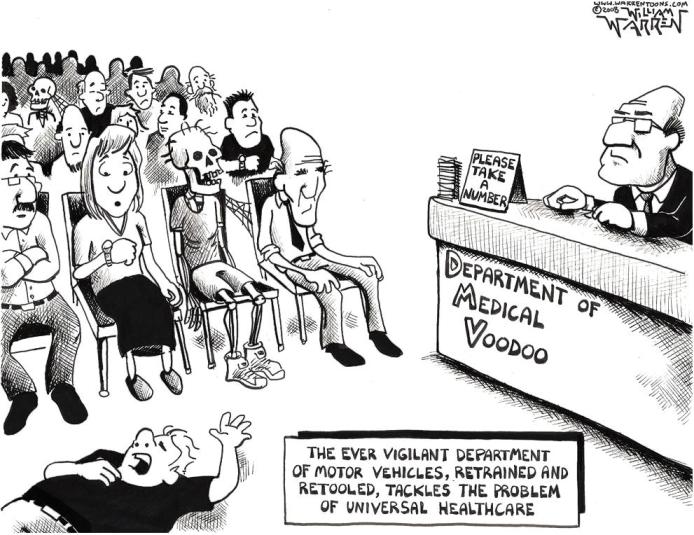A compelling – and somewhat shocking – new report has revealed that taxpayer-funded universal healthcare could wind up being more costly and less efficient than its private sector alternatives.
What makes the report compelling is that it comes at a time when the leading left-wing politicians are falling all over themselves to promise just the opposite. What makes it shocking is where it comes from: Harvard University.
John Goodman at the National Center of Policy Analysis (NCPA) has summarized the findings of Harvard’s National Bureau of Economic Research (NBER), which note that:
- Publicly-financed healthcare systems throughout the world have not shown any evidence in the ability to control the healthcare costs;
- Those systems only seem to be modestly progressive because while the rich may, in fact, end up paying more, the limits of taxpayer funding will limit the options for everyone else;
- Marginal increases in government spending, if used on specialists and elective procedures, may actually be regressive because it deprives the poor of costlier treatments;
- Public healthcare has little impact on economic inequalities;
- And, increased government spending on healthcare tends to reduce financing of other public services.
In other words, the promises Americans have heard that universal healthcare will keep costs down, would bring better healthcare to the poor, will be more efficient, will help bring economic equality to our society, and will be affordable by taxpayers – these are all a sham.
The author of the study notes that publicly-provided healthcare is less efficient at providing and delivering services than private healthcare:
“In general, financing systems are more efficient the less they distort individuals’ choices (around work, consumption, investment, etc.) In this sense, private insurance … and out-of-pocket payments are fully efficient.” (Glied, 6)
It appears that Harvard, for far too long a veritable bastion of socialist balderdash, has dusted off its motto and retrieved its legacy: Veritas – for the health of all involved.
ALG Perspective: Universal healthcare will mean longer waits for treatment, because there will be more use of unnecessary elective procedures. It will mean that costs will go up because it will limit competition. It will mean that overall everyone will receive poorer quality of care. And generally speaking, the larger government bureaucracies become, the less they are able to help those who cannot help themselves. Those who can afford healthcare should be allowed to continue to do so without having to subsidize the weight of a universal system which will undermine everyone’s care including their own.


